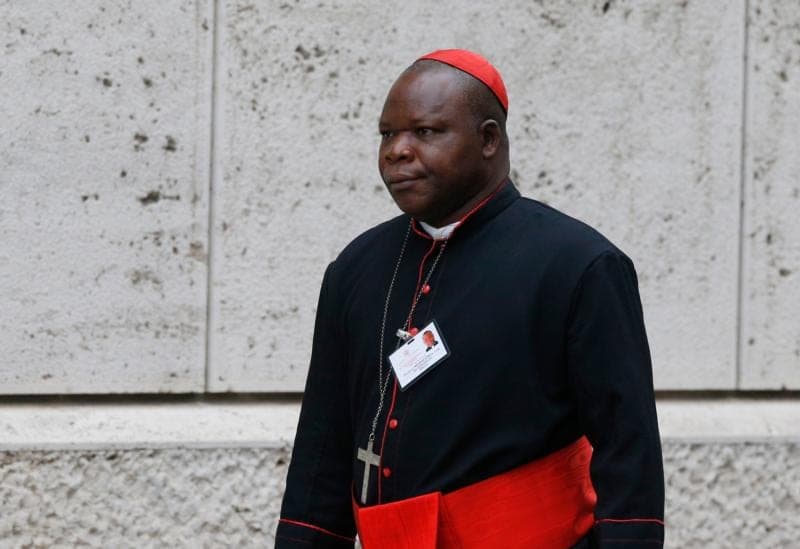YAOUNDÉ, Cameroon – Foreign interests are undermining the peace in the Central African Republic, according to the country’s top Catholic.
Cardinal Dieudonné Nzapalainga, the Archbishop of Bangui, cited the foreign mercenaries in the conflict-ridden country, which he said were brought in by “some brothers for political, economic, ethnic and selfish reasons.”
He was speaking at a Sept. 30 event marking 125 years of Catholic evangelization in the archdiocese.
The Central African Republic has experienced instability since 2013, when Seleka, a Muslim-majority militia movement, overthrew the government. The Christian-dominated Anti-Balaka militia then formed to fight the Seleka. French and African peacekeepers were deployed in January 2014 and drove the Seleka forces from the capital, Bangui.
RELATED: Bishops of Central African Republic ‘outraged’ by threat against Muslim population
With the government unable to exert authority beyond Bangui, armed groups and militias have taken control of more than 70 percent of the country.
Both sides have made use of foreign fighters in the conflict.
Nzapalainga said the mercenaries “undermine coexistence and complicate dialogue.”
“Even today, armed groups and those who support them have the hegemony over the assets of our country. The excessive and rapid enrichment of some to the detriment of others worries us,” the cardinal said.
He also reiterated a point Catholic and Muslim leaders have been making since the conflict began: It is not interreligious in nature.
“What we have in the Central African Republic is not a religious war,” the cardinal told Crux in July 2017.
“No Christian or Muslim leader leads any of these extremist groups,” he said. “If it were an inter-religious conflict, then you wouldn’t see Christian leaders sheltering Muslims fleeing conflict, and Muslim leaders sheltering Christians.”
Nzapalainga called it “a political and economic war; people are fighting over land and mineral resources.”
“It is a war over minerals,” he stated.
The Central African Republic is home to several ethnic groups, but there is no significant history of sectarian or deep-seated religious enmity in the country.
Christians make up about 80 percent of the population of the Central African Republic, and Muslims about 15 percent.
The Muslim population is concentrated in the north of the country that touches on the Sahel region of Africa, although there are many Muslim traders in the south.
Pope Francis visited Bangui in 2015 and met with Muslim leaders, emphasizing the need for inter-religious peace and dialogue.
Foreign involvement
The foreign involvement in the conflict has been influenced by the history of the region.
Idriss Deby of Chad once sponsored a rebel movement in the country to enable Chadian soldiers to enter the northern parts of CAR to fight with Chadian rebels based there.
Many of these Chadian rebels have since sought shelter in the country.
Chad has also been drilling for oil in an oilfield shared by the two countries, oil which has also led to interest from French and Chinese companies, further complicating the situation in the CAR.
Nzapalainga has called on CAR citizens to exercise tolerance towards each other and has started a new pastoral year to coincide with the anniversary of evangelization. It’s theme is “Ecumenism and interreligious dialogue in a country at war: The case of the Central African Republic.”
“May the Lord pull us out from intolerance, discrimination, distrust, misery, rage, hatred, revenge. May he sow trust, tolerance, and kindness into our hearts. May the Virgin, Mother of Oubangui, Queen of Peace, teach us how to dialogue with our brothers and sisters in love and truth,” the cardinal said.
The United Nations says the conflict has left at least 1.1 million people destitute and homeless, with about 2.5 million people – more than half of CAR’s four million inhabitants – now in need of humanitarian assistance.















